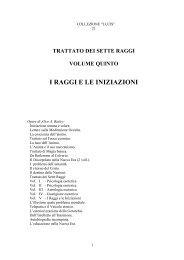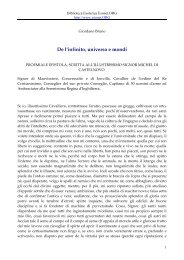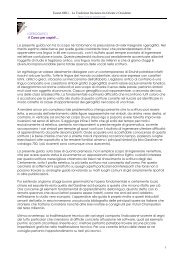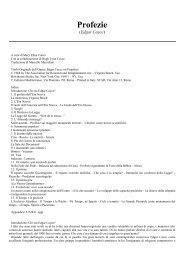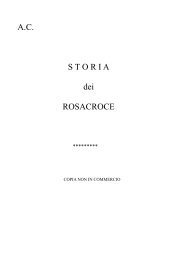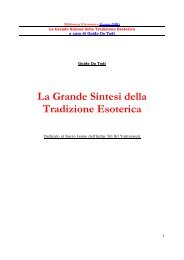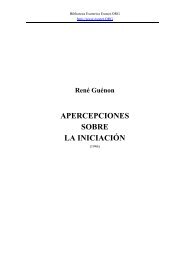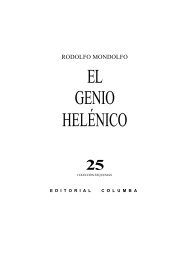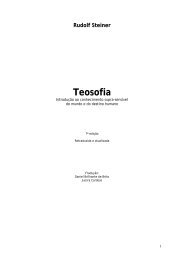Biblioteca Esoterica Esonet.ORG http://www.esonet.ORG 1
Biblioteca Esoterica Esonet.ORG http://www.esonet.ORG 1
Biblioteca Esoterica Esonet.ORG http://www.esonet.ORG 1
You also want an ePaper? Increase the reach of your titles
YUMPU automatically turns print PDFs into web optimized ePapers that Google loves.
<strong>Biblioteca</strong> <strong>Esoterica</strong> <strong>Esonet</strong>.<strong>ORG</strong><br />
<strong>http</strong>://<strong>www</strong>.<strong>esonet</strong>.<strong>ORG</strong><br />
above or below average. The level of mankind's evolution at the time, and of society's and<br />
its culture's, also are important factors usually completely unrecognized in arguments<br />
about the after-death state. Thus statements that would apply to all individual situations<br />
(for example, the length of time between two "incarnations") can have only general<br />
validity. This validity also depends upon the expectable reactions of persons to whom<br />
such statements are made. Knowledge has validity only in terms of the knower or (in<br />
some cases) of a new generation to which it will be imparted.<br />
Thus if a person is convinced that his or her "soul" exists primarily or essentially in<br />
terms of the desire for and the fulfillment, failure, or frustration of interpersonal<br />
relationships — and therefore is identified with the kama principle — this person is right<br />
when saying that the personal soul not only persists after death, but returns later on as a<br />
new person. This is the "personal" way of interpreting the situation that develops after<br />
death.<br />
The interpretation based on the Movement of Wholeness defines death as the<br />
beginning of the symbolic Night of a very small sub-subcycle constituting a particular<br />
human life. Death is the "Gate of Silence" through which a human center of consciousness<br />
passes at the close of the existential Day hemicycle. At this time the principle of Unity<br />
begins to dominate the Movement of Wholeness as experienced by this particular person,<br />
"being" assumes increasingly subjective states, and the principle of Multiplicity and<br />
objectivity becomes internalized. This internalization produces memory images in the<br />
consciousness. These images constitute a subjectivized mode of relationship; they<br />
resemble the dreams that occur during the sleep of the physical body — and there are<br />
many kinds of dreams, including powerful nightmares.<br />
Thus in the case of a person closely identified with the kama principle, the desire-body<br />
(in which kama Operates within the structures defined by the concretizing or lower mind)<br />
survives for a period after death. The length of survival depends on several factors.<br />
Among them are the intensity and character of the desires and the organizing power of the<br />
concretizing mind. Also significant is the degree to which the karma of the past has been<br />
neutralized by the performance, unconscious if not conscious, of the dharma which the<br />
higher mind and the spiritual will attempted to impress upon the personality's lower<br />
mental consciousness. Other determining factors are the extent to which this spiritual will<br />
and higher mind had been active, the degree of differentiation and concentration of the<br />
spiritual Quality, and the state of development of the ideity field as a place of meeting for<br />
the potential union of the spiritual entity and the personality. Because Western civilization<br />
today primarily and often exclusively accentuates the personal, ego-centered factors in a<br />
human being and in personal relationships to people, money, profession, and possessions<br />
(including pets!), the persistence of all these personal factors in terms of subjective<br />
memory experiences must be the norm in the period following death. But what are these<br />
"subjective memory experiences"?<br />
121



